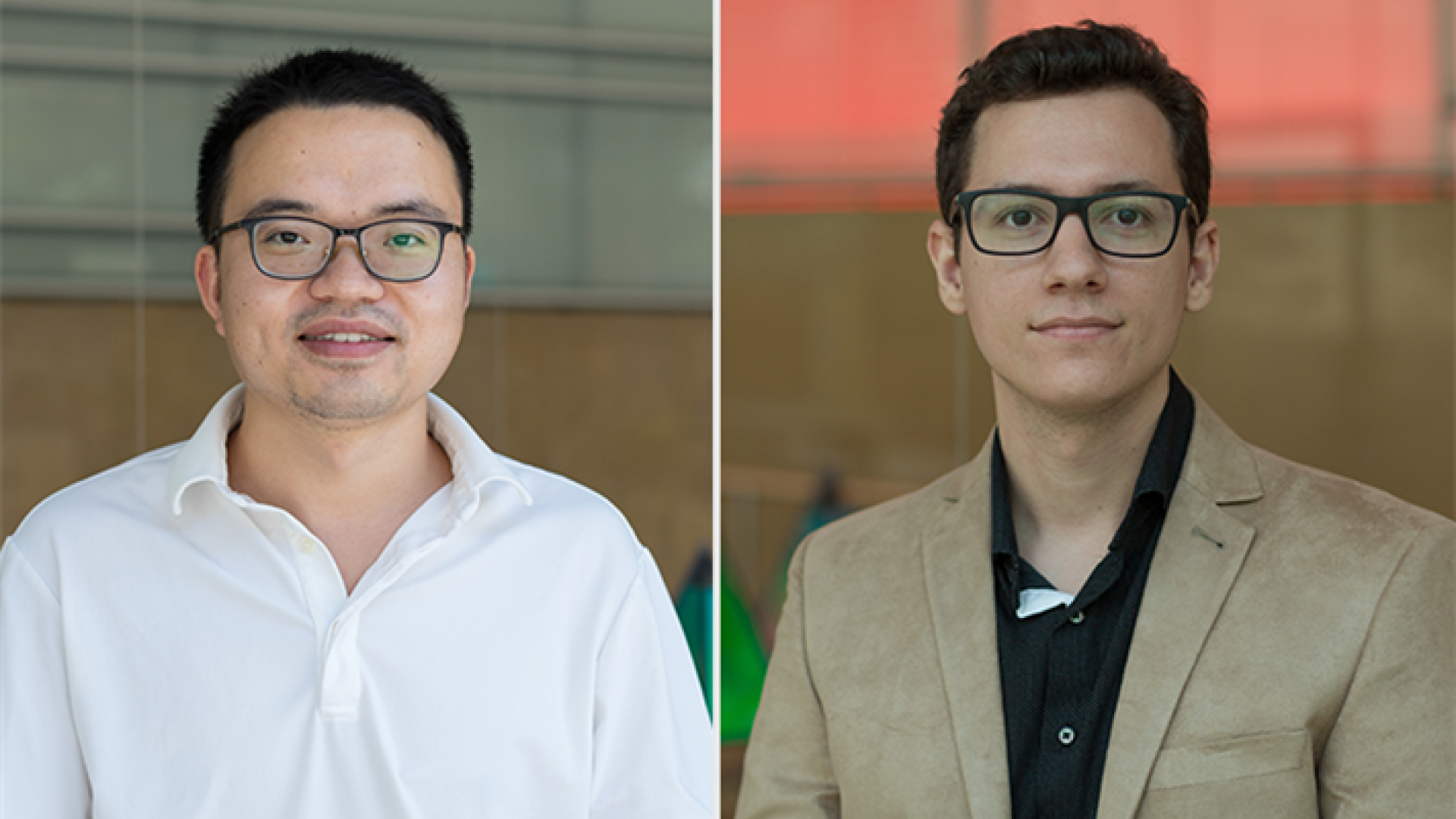By Sonia Turosienski
KAUST Ph.D. students David Evangelista and Xianjin Yang, who are supervised by Diogo Gomes, professor of applied mathematics and computational science, won best paper awards at conferences this summer for their work in mean-field game (MFG) theory.
Mean-field games model and seek to explain the behavior of rational agents in a competitive environment and have been used in diverse areas of research, including studies on non-renewable resources and mining models; opinion dynamics; price impact and order book modeling; and networks and energy management.
Evangelista was selected for the "best paper presented by young scholar" award at the 18th International Symposium on Dynamic Games and Applications held from July 9 to 12 in Grenoble, France. He won the award for his paper entitled "On the existence of solutions for stationary mean-field games with congestion." Evangelista was motivated by a general crowd motion model where agents avoid congestion.
"It was very important for me to be recognized at a conference organized by a high-level society that specializes in my field of interest," Evangelista said. "I was competing with researchers who finished their Ph.D.s up to five years before the date of the conference. A postdoctoral researcher and an assistant professor [reached] the final stage. Therefore, as a Ph.D. candidate, I was deeply honored to be awarded by the society. There is no doubt in my mind that the support of KAUST through my Ph.D. advisor has been essential to start building a solid research career."
Yang was selected as one of the best papers presented by students at the 12th American Institute of Mathematical Sciences (AIMS) Conference on Dynamical Systems, Differential Equations and Applications held from July 5 to 9 in Taipei, Taiwan. He won the award for his paper entitled "Hessian Riemannian flows for effective Hamiltonians and Mather measures."
Yang's paper "uses ideas from mean-field game theory to develop numerical methods for homogenization problems and substantially improves state of the art algorithms," Gomes explained.
"It's my great honor to be selected as a finalist and to report my research at the AIMS conference. At the conference, I met with some excellent mathematicians and learned a lot from their talks. This experience also encouraged me to pursue excellent work in the future," Yang noted.

